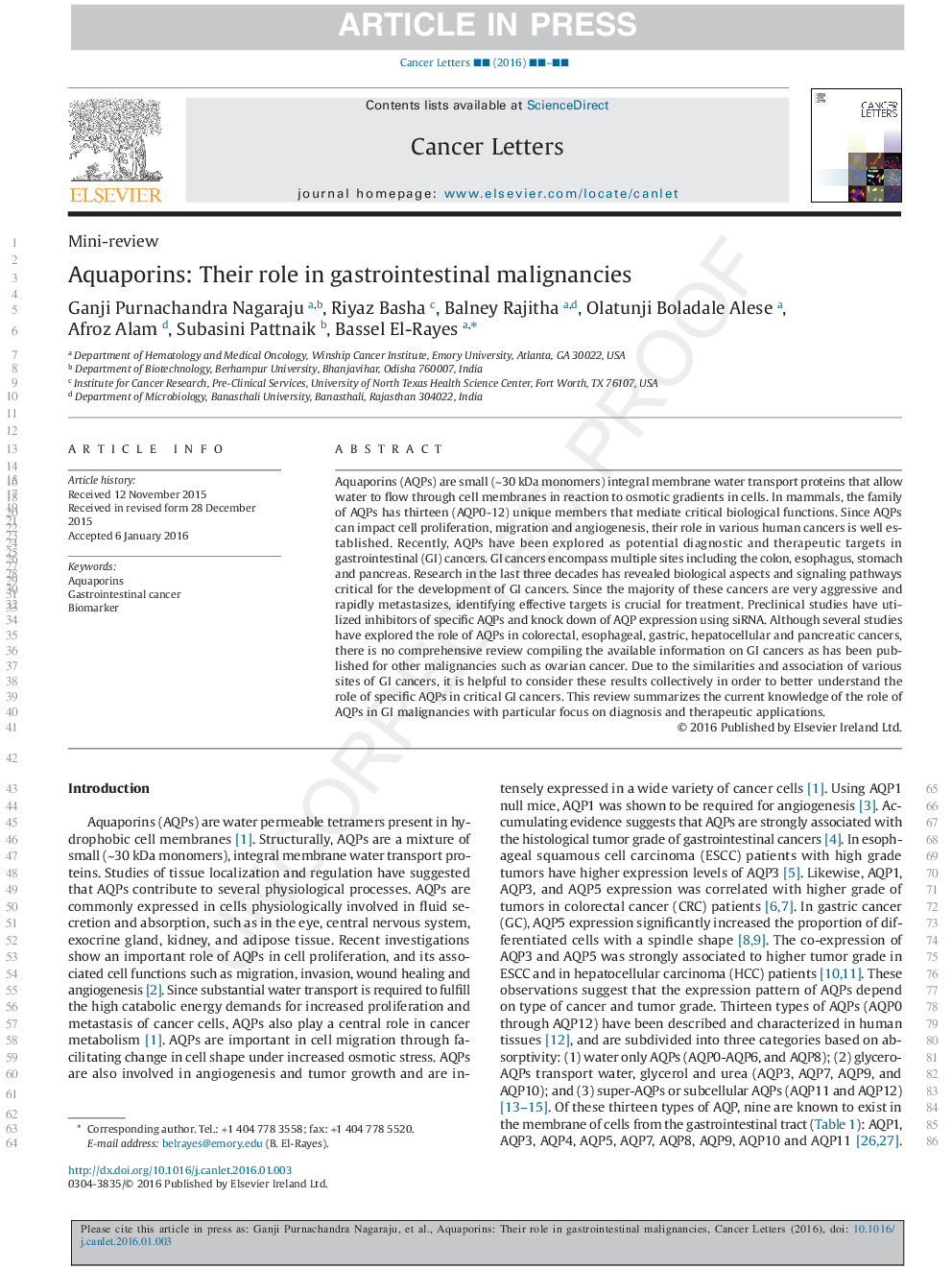| Article ID | Journal | Published Year | Pages | File Type |
|---|---|---|---|---|
| 10899366 | Cancer Letters | 2016 | 7 Pages |
Abstract
Aquaporins (AQPs) are small (~30âkDa monomers) integral membrane water transport proteins that allow water to flow through cell membranes in reaction to osmotic gradients in cells. In mammals, the family of AQPs has thirteen (AQP0-12) unique members that mediate critical biological functions. Since AQPs can impact cell proliferation, migration and angiogenesis, their role in various human cancers is well established. Recently, AQPs have been explored as potential diagnostic and therapeutic targets in gastrointestinal (GI) cancers. GI cancers encompass multiple sites including the colon, esophagus, stomach and pancreas. Research in the last three decades has revealed biological aspects and signaling pathways critical for the development of GI cancers. Since the majority of these cancers are very aggressive and rapidly metastasizes, identifying effective targets is crucial for treatment. Preclinical studies have utilized inhibitors of specific AQPs and knock down of AQP expression using siRNA. Although several studies have explored the role of AQPs in colorectal, esophageal, gastric, hepatocellular and pancreatic cancers, there is no comprehensive review compiling the available information on GI cancers as has been published for other malignancies such as ovarian cancer. Due to the similarities and association of various sites of GI cancers, it is helpful to consider these results collectively in order to better understand the role of specific AQPs in critical GI cancers. This review summarizes the current knowledge of the role of AQPs in GI malignancies with particular focus on diagnosis and therapeutic applications.
Related Topics
Life Sciences
Biochemistry, Genetics and Molecular Biology
Cancer Research
Authors
Ganji Purnachandra Nagaraju, Riyaz Basha, Balney Rajitha, Olatunji Boladale Alese, Afroz Alam, Subasini Pattnaik, Bassel El-Rayes,
